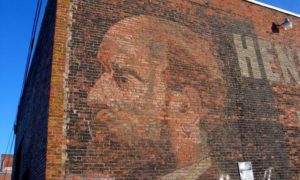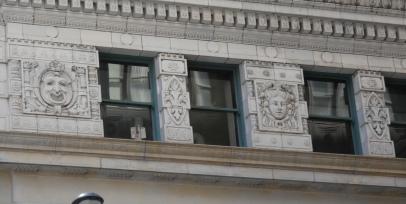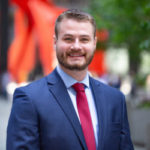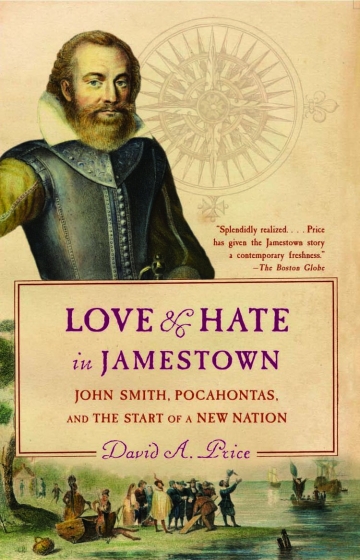
Henry George was born in Philadelphia on September 2, 1839, so we’ll celebrate his 180th birthday on Labor Day. As usual, the event will be in a south Evanston back yard, beginning when we get some shade around 3:00, and continuing at least until dark (We do have indoor space in case of rain or extreme heat).
This is a potluck; bring something if you can and let Chuck know about it. Grilled sausages and some vegan stuff will be provided. All alumni, friends, and prospective students of the School are welcome but you must let us know you’re coming. Expect to find some soft drinks, beer, maybe wine if somebody brings some.
While the event is free, monetary donations will be gratefully accepted.
PLEASE NOTE: Due to building rules you must register to attend this session.
Yes, it is possible to end poverty in America — or any independent nation — by recognizing a clear and logical distinction between private property and community property. Not just the poor, but everyone would have the opportunity to earn a decent living and enjoy better quality of life. Henry George, a prominent American philosopher and economist of the late 19th century, was the leading advocate of this reform. His book on the subject, Progress and Poverty, was probably the best-selling nonfiction work of his time, sparked a movement which brought prosperity to several American communities and foreign countries.
Introducing Progress and Poverty is a program by the Henry George School of Chicago, outlining the principles George advocated, how and why they work, and their potential for solving today’s problems — not just poverty but everything that follows from it, such as lack of affordable housing, employment discrimination, inadequate wages, political corruption, etc. Attendance is without charge or obligation.
For those wanting in-depth understanding of the logic and implications of Progress and Poverty, this presentation constitutes the initial session of an extended course which will continue at this location on Tuesdays thru November 19
If you are interested in the topic but this date and location doesn’t fit your schedule, please sign up for our announcement list.

Right on the streets of every American community, robbery takes place every working day. You might not realize how much value the people of Chicago (and every other community) already create, simply by going about our daily activities. You’ll learn how we could comfortably produce much more, if only a smart tax policy were put in place.
Originally conceived as a field trip for Progress and Poverty students, this stroll — about 2 km and 90 minutes — presents some answers for those interested in finding out. Additionally, we’ll take a look at recovered loot of a long-ago theft, learn how Thomas Jefferson proposed to finance Chicago’s public schools, see some infrastructure that you probably didn’t know about, visit a shopping mall that you paid for but don’t own, and glimpse a billionaire’s downtown garden.
Detailed sourced notes will be provided. This is now a free tour, no donation required, although we do appreciate (tax-deductible) contributions from those who can afford it and find the event worthwhile.
Please sign up using the Eventbrite link.

Decades before Wealth of Nations, Adam Smith wrote what he seems to have considered a superior work, Theory of Moral Sentiments. He wrote:
How selfish soever man may be supposed, there are evidently some principles in his nature, which interest him in the fortune of others, and render their happiness necessary to him, though he derives nothing from it except the pleasure of seeing it.
Wikipedia asserts:
Smith critically examines the moral thinking of his time, and suggests that conscience arises from dynamic and interactive social relationships through which people seek “mutual sympathy of sentiments.”[74] His goal in writing the work was to explain the source of mankind’s ability to form moral judgement, given that people begin life with no moral sentiments at all. Smith proposes a theory of sympathy, in which the act of observing others and seeing the judgements they form of both others and oneself makes people aware of themselves and how others perceive their behaviour.
The Theory of Moral Sentiments has been printed in numerous editions, and is also available free on line. Smith revised the book throughout his lifetime; it’s best to avoid the first edition, and choose one published after his death in 1790.
In this session we’ll discuss parts 1-3 of the book, taking up parts 4-7 on November 20,
Event description at the registration link
Event description at the registration link

Illinois has some of the nation’s top pension debt and decades of irresponsible budget-making. Another session of the General Assembly has come to a close. Were legislators able or willing to make progress in finally addressing these decades-old long-standing issues, or were they once again swept under the rug and put off for future? Is what happens in Illinois a bad lesson for your state’s government?
Please join Adam Schuster, director of budget and tax policy of Illinois Policy Institute for a sober analysis of the state’s budget future, in an always lively and fascinating discussion.
If you wish to participate in the Zoom Webinar, please click the green Register button for an invitation. Alternatively, you may attend in person at the Henry George School’s location at Signature Office, 333 S Wabash Ave #2700, Chicago, Illinois. If you intend to come in person, please send your name, phone number, and email address to events@hgchicago.org.
Please register for this Zoom Webinar by clicking the green registration button.
David Wilson, author of the forthcoming book Towns Along the Q, will discuss the consequences of certain disastrous and discriminatory housing policies that he has become familiar with in the course of researching the topic, development of Chicago’s western suburbs along the Chicago Burlington & Quincy Railway.

 “In 1606, approximately 105 British colonists sailed to America, seeking gold and a trade route to the Pacific. Instead, they found disease, hunger, and hostile natives. Ill prepared for such hardship, the men responded with incompetence and infighting. Only the leadership of Captain John Smith averted doom….” (from the book jacket).
“In 1606, approximately 105 British colonists sailed to America, seeking gold and a trade route to the Pacific. Instead, they found disease, hunger, and hostile natives. Ill prepared for such hardship, the men responded with incompetence and infighting. Only the leadership of Captain John Smith averted doom….” (from the book jacket).

